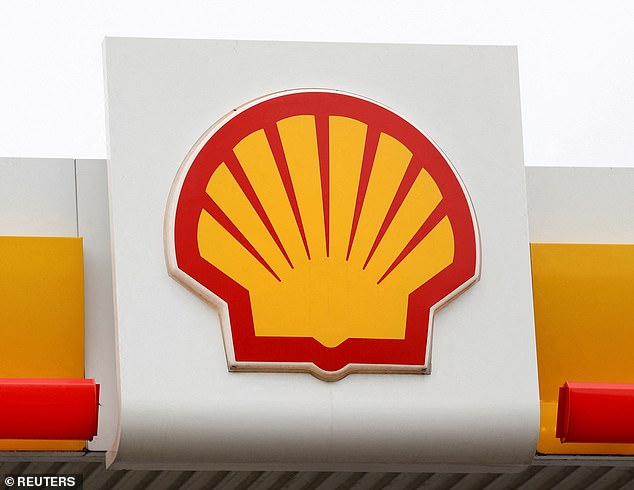- Shell ensures future competitiveness given current market conditions
- The UK oil and gas industry has been rethinking its low-carbon ambitions
Shell has halted construction of a major biofuels facility in the Netherlands that was to focus on converting waste into jet fuel.
The oil giant said work had been halted at its Rotterdam plant to “address project delivery and ensure future competitiveness given current market conditions.”
The aim is to reduce the activity and number of contractors on site in order to “control costs and optimise project sequencing”.
Pause: Shell has halted construction of a major biofuel plant in the Netherlands
Shell gave the green light to the project in September 2021 as part of its plan to provide more low-carbon transport fuels and hydrogen across Europe.
If completed, the facility will produce enough renewable diesel to remove 2.8 million tons of carbon dioxide each year, the equivalent of taking more than a million cars off the road.
However, Britain’s oil and gas industry has been rethinking its low-carbon energy ambitions, partly prompted by investor concerns about weak returns.
Last week, BP announced it would freeze all new offshore wind projects and investment in two biofuel projects in Germany and the United States.
Its chief executive, Murray Auchincloss, said the FTSE 100 business would instead prioritise investment in fossil fuel assets.
His approach represents a radical shift from his predecessor, Bernard Looney, who introduced the company’s goal of reducing emissions to net zero by 2050.
Shell has also been scaling back energy transition projects and targets under its new chief, Wael Sawan, who succeeded Ben van Beurden last year.
While the company continues to aim for net zero emissions by 2050, it recently abandoned a goal of reducing the net carbon intensity of its energy products by 45 percent by 2035.
Regarding the Rotterdam facility, Shell’s director of energy, renewables and downstream solutions, Huibert Vigeveno, said the pause “will allow us to evaluate the most commercial way forward with the project.”
He added: ‘We are committed to our goal of achieving net zero emissions by 2050, with low carbon fuels a key part of Shell’s strategy to help us and our customers decarbonise profitably.
“And we will continue to use our shareholders’ capital in a measured and disciplined manner, generating more value with fewer emissions.”
Shell shares Treasury bills rose 0.3 percent to 2,866.5 pence on Tuesday afternoon and have risen about 21 percent over the past 12 months.


